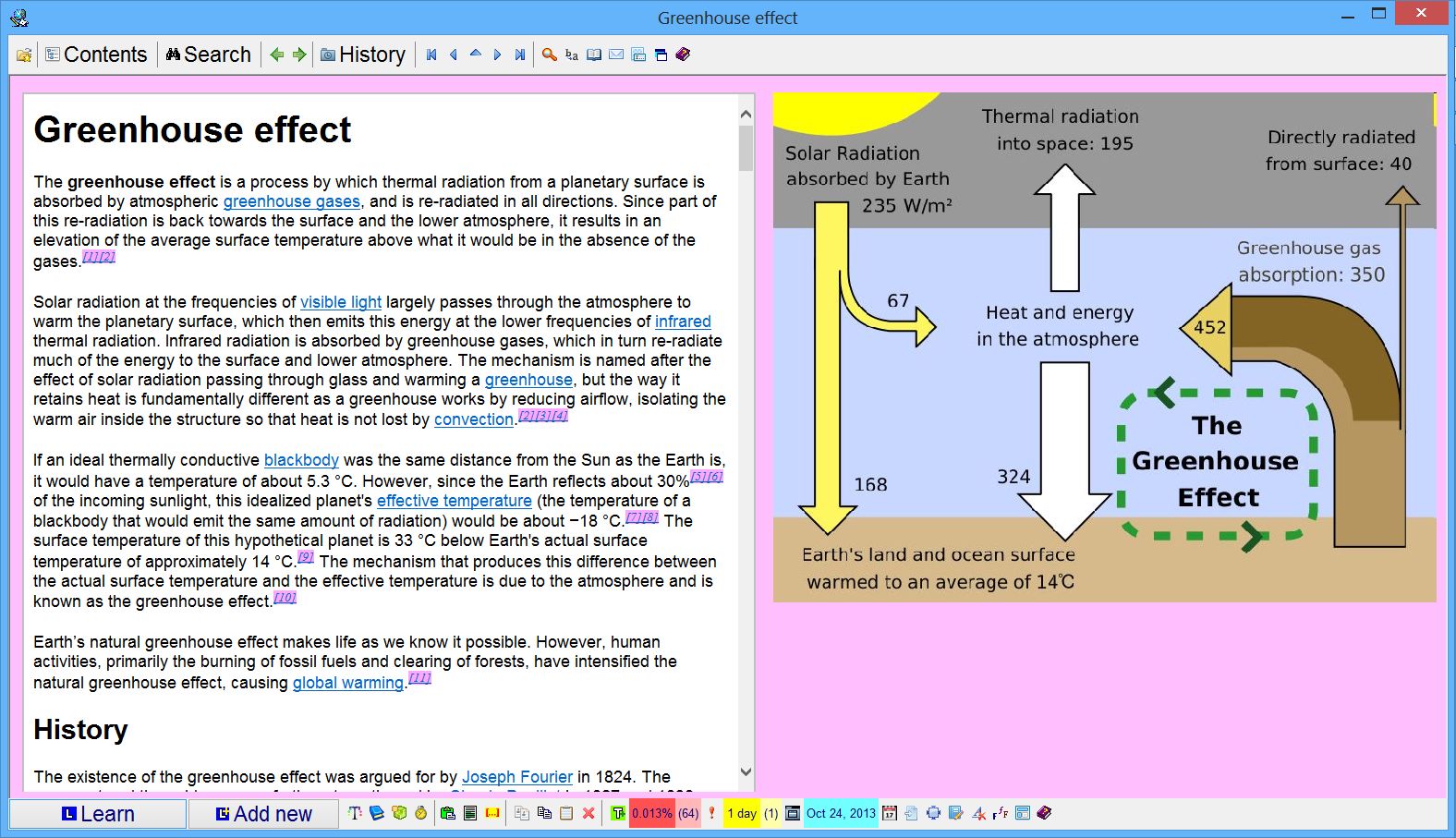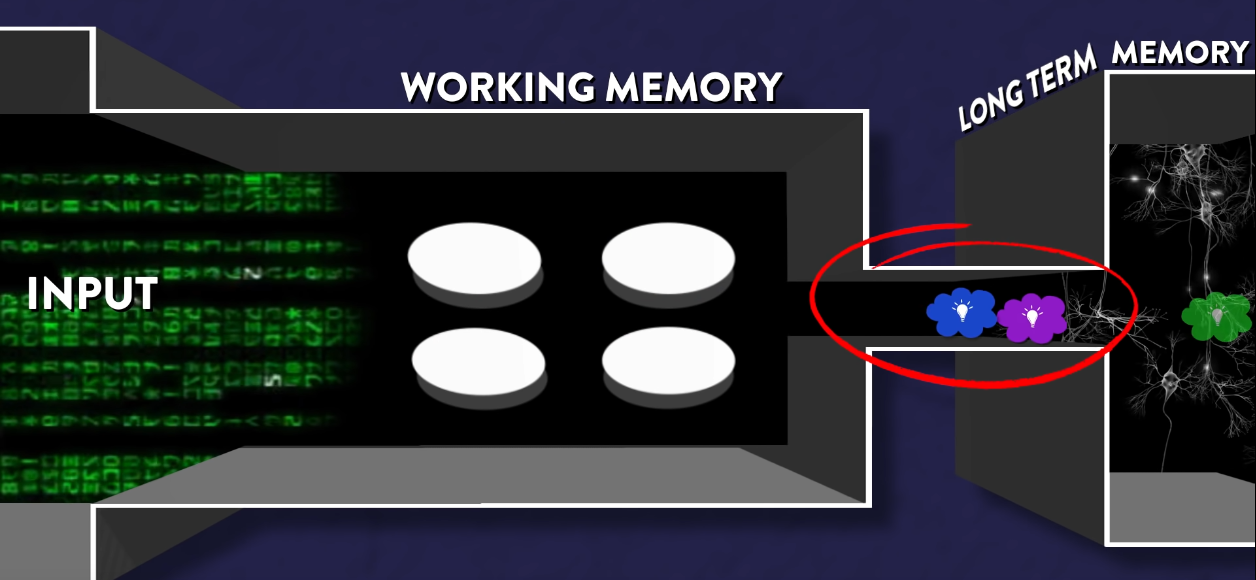Incremental Reading: Turned Out I Didn't Know How to Read

Internet: the ultimate candy store
As McLuhan suggested, media aren’t just channels of information. They supply the stuff of thought, but they also shape the process of thought. And what the Internet seems to be doing is chipping away my capacity for concentration and contemplation. Whether I’m online or not, my mind now expects to take in information the way the Net distributes it: in a swiftly moving stream of particles. Once I was a scuba diver in the sea of words. Now I zip along the surface like a guy on a Jet Ski.
Nicholas Carr is referring the Net or a computer in general as the medium. We can however, be more granular and break it down further. The computer is not a whole unit of medium, but each app: a browser (Chrome/Firefox) or SuperMemo is.
Don’t fight; the game is rigged
When we go online, we enter an environment that promotes cursory reading, hurried and distracted thinking, and superficial learning.
There are the myriad visual cues that flash across our retinas as we navigate the online world: not just the ever-changing arrays of text and pictures and videos but also the hyperlinks distinguished by underlining or colored text.
The Net also provides a high-speed system for delivering responses and rewards—“positive reinforcements,” in psychological terms—which encourage the repetition of both physical and mental actions. When we click a link, we get something new to look at and evaluate. When we Google a keyword, we receive, in the blink of an eye, a list of interesting information to appraise.
Years of using the browser for the Internet has taken a life of its own. I’m like a Pavlov’s dog: when I’m in Chrome/Firefox I just jump around to different sites when reading. Jumping between sites is the norm but staying in one site is not. When Googling I at least open the first five search results; I follow the hyperlinks and see where they take me; I have at least two dozens of tabs open. In other words, the browser (Internet) is not a place to stop and read.
I could never focus in a browser. For example, Jupyter Notebook is web-based. But my attention is so ruined in a browser while Jupyter Notebook is being too useful to be ignored… that I resorted to downloading Brave just for Jupyter Notebook in order to “start fresh”.

Working memory, cognitive load, the Internet
Imagine filling a bathtub with a thimble; that’s the challenge involved in transferring information from working memory into long-term memory. By regulating the velocity and intensity of information flow, media exert a strong influence on this process. When we read a book, the information faucet provides a steady drip, which we can control by the pace of our reading. Through our single-minded concentration on the text, we can transfer all or most of the information, thimbleful by thimbleful, into long-term memory and forge the rich associations essential to the creation of schemas. With the Net, we face many information faucets, all going full blast. Our little thimble overflows as we rush from one faucet to the next. We’re able to transfer only a small portion of the information to long-term memory, and what we do transfer is a jumble of drops from different faucets, not a continuous, coherent stream from one source.

Source: How To Remember Everything You Learn. Great video! Go check it out!
How the Internet is not meant for reading deeply:
The extensive activity in the brains of surfers also points to why deep reading and other acts of sustained concentration become so difficult online. The need to evaluate links and make related navigational choices, while also processing a multiplicity of fleeting sensory stimuli, requires constant mental coordination and decision making, distracting the brain from the work of interpreting text or other information. Whenever we, as readers, come upon a link, we have to pause, for at least a split second, to allow our prefrontal cortex to evaluate whether or not we should click on it. The redirection of our mental resources, from reading words to making judgments, may be imperceptible to us—our brains are quick—but it’s been shown to impede comprehension and retention, particularly when it’s repeated frequently. […] In reading online we sacrifice the facility that makes deep reading possible. We revert to being “mere decoders of information.” Our ability to make the rich mental connections that form when we read deeply and without distraction remains largely disengaged.
From Indistractable:
Thankfully, a simple rule fixed all my tab troubles and has helped me steer clear of mindless web browsing:
I never read articles in my web browser.
One space, one use… One app, one use?
Compartmentalization
Think about it as compartmentalization. Like physically being in a room, when I’m in Firefox, my natural tendency, the default mode is being distracted. I don’t know when this started but whenever I google something, I’ll click at least a few links before actually starting reading.
On the other hand, in SuperMemo, there is no distraction. With Incremental Reading, I’m actively and single-mindedly focused on one article at a time. If I read the same text online, my attention probably wouldn’t last, and I’d bet that I’m already in a different site before finishing the 3rd paragraph.
When I’m in SuperMemo-land, my tendency is just to focus, study and read. Without Internet connection I can’t get distracted by new content in the name of “further research”. And the outstanding queue provides me with enough novelty that I’m at the right level of arousal: my SuperMemo collection is varied enough without being too provoked by the never-ending stream of new online content.
To put it simply, SuperMemo is the cue for focused attention while Firefox is synonymous with distraction. PS: I don’t even pin Firefox in the taskbar because that enticing Firefox logo represents the portal to the rabbit hole that is the Internet.
Pull Factor: Incremental Reading
I have gotten used to reading hours on end in SuperMemo. The active reading style that is Incremental Reading, the never-ending outstanding queue to keep me engaged, the joy of between reading for pleasure, school and work. (Further reading: Incremental Reading: Reading the Same Article Two Years Later)
Incremental Reading + Disconnected Computer = The Best of Both Worlds
I get to enjoy all the benefits offered by Incremental Reading without the downsides that come with “reading online”. In this case you can have your cake and eat it too.
My Approach
I don’t stay connected to the Internet. I turn off the WI-FI during my SuperMemo sessions. When I come across interesting online articles, I just import them into SuperMemo, adjust the priority in the priorty queue, then let the algorithm handles the rest. When it shows up in the outstanding queue I use my SuperMemoVim to send it to Balabokla for Incremental Reading + Text-To-Speech (TTS) = 2x Concentration and Engagement.
Conclusion
If you’ve made this far (kudos!), this article might give the following wrong impression:
Before the dawn of the Internet, I could read deeply (with physical books). Then the Internet has ruined my attention, and now SuperMemo has come to the rescue.
But the truth is that, before SuperMemo I was never big into reading. So it’s more appropriate to say that I’d never developed the ability to read deeply. The fact that I could never “read online” reflects that I didn’t know what “actual reading” looked like: to actually ponder, absorb and engage with the reading material. I was “surfing” the web.
Now however, SuperMemo has cultivated my ability to read deeply and thus, I now notice a world of difference between reading in SuperMemo and reading in the browser (or with physical books for that matter). SuperMemo has made me realize how distracted and of low-quality my reading was before.
This is currently the best video on getting started with Incremental Reading: Starting with SM Going through the IR Manual.
All hail SuperMemo and Incremental Reading.